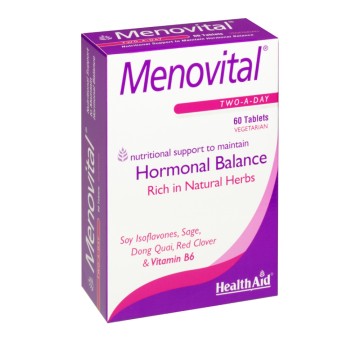In the modern world, knowing and understanding the functions of our body have become essential tools for a healthy life. Especially for women,
period delay plays an important role in many phases of their lives, affecting both their physical and psychological health. This particular article attempts to highlight the various aspects of menstrual variation, analyzing factors such as breastfeeding, vigorous exercise, changes in body weight, sleep disorders, the effects of various health problems, the role of the thyroid, the effect of age and the consequences of stress and anxiety. This analysis aims to provide a more comprehensive understanding of the menstrual cycle and the potential effects that various factors can have on the regularity and smoothness of periods, highlighting the importance of being informed and paying attention to body signs.
How late is a period?
Periods vary from person to person, and while some may have very regular periods, for most there are slight differences. So, if your period is a few days late, there is no need to worry.
Ο
menstrual cycle it measures the interval from the first day of one period to the first day of the next. Usually, it takes approx
28 days, but can range from 21 to 35 days.
A cycle that varies slightly from month to month, e.g. 28 days in one month and 26 in the next is not a concern.
But there may be cause for a little concern if:
- Have passed over 35 days since your last period.
- You usually have a lot regular periods and now your period is late more than 3 days.
Reasons why your period is late
When the
period is delayed, many women think of pregnancy first. However, there are other reasons why this may be the case. Let's look at some reasons that may contribute to this
period delay.
1. Breastfeeding
When you breastfeed frequently, you may notice that your period does not return immediately after giving birth. This phenomenon is called
lactational amenorrhea and may increase the time before you can get pregnant again. That's why some people use it as a natural form of contraception. But if you haven't started your period and you're not following this method, it's a good idea to talk to a health professional. He will be able to help you understand why there is a delay in the return of your period.
2. Vigorous Exercise
If you do a lot
vigorous exercise, you may notice a delay or even complete cessation of your periods. This is because exercise causes stress on the body, which can cause the brain to reduce or stop producing hormones that are important for
menstruation. One such hormone is gonadotropin, which helps determine the timing of your periods. If the brain does not produce enough gonadotropin, you may stop having periods, a condition called amenorrhea.
3. Body Weight
After menopause, estrogen, an important hormone, is produced mainly by the
body fat. This means that if body fat increases, estrogen levels also increase. This increase in estrogen can affect the menstrual cycle, causing heavy or irregular periods.
If you have high levels of estrogen for a long time, this can increase your risk of breast or endometrial cancer. On the other hand,
rapid weight loss can lead to irregular periods, as the
estrogen are necessary to prepare the uterus for pregnancy. When you lose a lot of weight, your body may not produce enough estrogen, affecting your period cycle.
4. Health problems
Irregular periods may be experienced by you for various reasons
health problems such as:
- Binge eating
- Uncontrolled diabetes
- Polycystic ovary syndrome
- Anorexia
- Primary ovarian failure
The cause of irregular periods can vary depending on the health problem. For example, there may be an infection in the reproductive organs from inflammation in the pelvic area or hormonal disturbances in the case of polycystic ovary syndrome.
5. Insomnia
If you don't get enough sleep, it's normal to feel tired. continuous
lack of good sleep can make this problem worse. Women who experience premenstrual difficulties may find that their sleep is negatively affected.
Problems like
irregular periods and
heavy bleeding associated with depression, fatigue,
less sleep, stress and generally worse sleep quality.
6. Thyroid
If you have problems with
thyroid may affect the regularity of your periods. The hormones produced by the thyroid help to
energy control of the body and affect various organs. If the levels of these hormones are high or low, many body functions can change, including the menstrual cycle.
If the
thyroid is hyperactive and produces a lot of hormone, periods may be shorter and more frequent. Conversely, if the thyroid does not produce enough hormone, periods may be less frequent.
7. Age
Before the
age of 20, your periods may not have one
regular rhythm. The same will happen when you approach menopause in old age.
This means that while you expect your periods to become less frequent as you approach menopause, you may be in for some surprises. For example, you may not have a period for
some months, but suddenly come back.
8. Anxiety and stress
The
stress it can make your period late or irregular. When you feel great
stress, this can change your period cycle, making it harder to get pregnant or have a smooth pregnancy.
In addition to making your period irregular, stress can cause other changes in your monthly cycle, such as
greater pain at any period or changes in
how long they last.
When should I visit a gynecologist?
If your period is late and you're wondering what to do, it's important to know when to talk to one
gynecologist. He can give you advice, answer your questions and check for any problems. See a gynecologist if you notice any of the following symptoms:
- Sudden heavy bleeding
- Severe pain
- Vomiting or nausea
- Dizziness
- Fever
Related products:



















